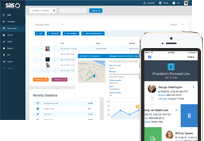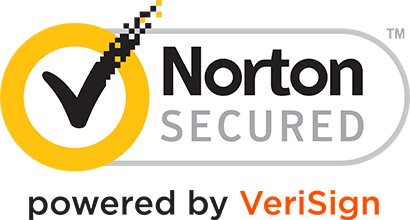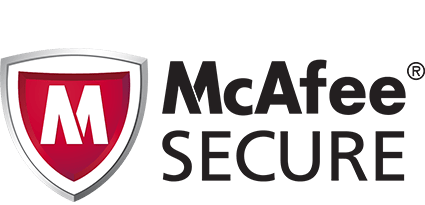- Log In
- Support
- Company
- Contact Us
- Live answers @ 1-888-532-4794
6 Questions to Ask When Opening a New Answering Service Account
Many factors should be considered when you’re determining how to best structure your answering service account. Ultimately, the final number of questions depends on how your organization is structured and your outsourcing objectives. Here are 6 points to keep in mind when deciding on how to have the answering service agents handle and screen calls:
#1. What is your outsourcing goal?
Is your outsourcing goal to capture more leads to help grow your business? Are you looking to be available to your customers after hours and on weekends? Does your staff just need a bit of extra help during the day to field incoming calls? After you determine what your outsourcing goal is, you can then work on devising a plan to have your answering service agents screen and handle calls accordingly. For example:
- If your outsourcing goal is to capture and convert more leads, your answering service could be used in a few ways. They can be used as an outbound telemarketing service to try and generate new leads, or they can be used as an inbound service to answer calls 24/7, answer questions, and use various techniques like up-selling and cross-selling to beef up a sale.
- If your outsourcing goal is to be available for customers after hours, a good idea would be to set up a dispatching protocol where the agents are able to discern what’s urgent or not so that your on-call staff are not getting slammed with tasks that can wait for the morning. Another option would be to utilize your answering service as a tier 1 help desk to help troubleshoot basic customer issues.
- If your outsourcing goal is to help alleviate your in-house staff during the day, you could have your answering service agents handle some of the same tasks your regular staff does, like schedule appointments, respond to emails, and process orders.
#2. Are the potential questions callers will ask too complex for a casual receptionist to answer?
Having your answering service help answer caller’s questions via programmable FAQs is an effective way to cut down on the amount of calls you have to return. However, you will want to keep in mind the amount of FAQs as well as the complexity of the questions. While a virtual receptionist can easily answer questions about things like business hours, services, insurance and pricing, they won’t be able to give more specific answers to some of those basic questions.
For example, an answering service agent will be able to tell a caller if they accept a particular insurance or not, but they won’t really be able to answer more specific questions like “what is the copay” or “what could I expect to pay for service on an area X big.” Once you start programming in more and more FAQs, operators can get confused and make mistakes. While you may want to equip your agents with as much information as possible, you must also take into account that these agents are not strictly answering your calls and your calls only. So, it can be difficult navigating paragraphs of information that may or may not be asked. At the end of the day, your answering service should be equipped to answer basic questions, and everything else should be left up to you and your staff.
#3. What type of call is going to be important enough to warrant reaching out to your staff?
While all customer calls are important, not all of them will require your staff’s immediate attention. That is why it’s important for you to set up specific protocols with your answering service to help distinguish between urgent and non-urgent scenarios. For example, a property tenant calling about low water pressure may not be urgent, but a tenant calling about having no water may be.
It’s also important that you are not leaving the decision making up to the answering service agents, as what they deem to be urgent or not urgent may not be congruent with what your staff considers urgent or not urgent. It’s a good idea to include a drop down of scenarios that a person may be calling in about, and have each of them follow a particular protocol. For example, a medical practice may have a list of the following options for urgent scenarios:
- Caller is in pain
- Caller is having an allergic reaction
- Caller is having suicidal tendencies
If the caller mentions any of these scenarios, your script can be programmed so that your agents are following an on-call schedule and reaching out to the appropriate on-call doctor. Some examples of non-urgent scenarios could include:
- Caller is almost out of medication
- Caller wants to schedule an appointment
- Caller has questions for the doctor
If the caller mentions any of these scenarios, your script can be programmed so that your agents are simply taking messages or scheduling appointments on your behalf, without having to reach out to the on-call doctor.
#4. If you’ve used an answering service before and they dropped the ball, is attempting the same protocol with a new service worth the risk?
Getting burned in a business venture is never easy, but your experience with one provider or company doesn’t have to be the end of your outsourcing endeavor. There are many companies who trial through a number of services before settling on one that suits their business model the best. However, if your previous answering service dropped the ball, it’s always important to look at both sides. Did the service drop the ball because they weren’t a good service, or did they drop the ball because the protocols you set up were too complicated for an answering service to handle successfully?
If you think it’s the former, then trying the same protocol with a different answering service could be the solution you were looking for. However, if you notice the same thing continues to happen no matter who your service provider is, you may want to consider simplifying your protocols to ensure successful transactions all the time.
#5. How much effort do you want to put into the outsourcing relationship?
Although there are some businesses that work with their answering service daily, there are others who only use their service every so often in case of emergencies or as needed. These relationships generally require a minimal amount of effort since the scripts are usually pretty basic and there aren’t a lot of phone calls that typically come through. Depending on how you want to use your service, you’ll need to determine how much effort you’re willing or capable of putting into it.
Some examples of businesses that may want to put a lot of effort into their outsourcing relationship could include:
Some examples of businesses that may just want to keep their answering service on the back burner could include:
#6. How much is an acceptable amount of money to spend on each interaction to help you achieve a reasonable ROI?
Depending on your particular business and what you are looking to achieve with your outsourcing goals, the amount of money you wind up spending is going to fluctuate. However, it’s important to determine if the money you are spending is worth it in the end, or if it’s more of a hassle than a benefit. For example, a small business with a limited budget may have big outsourcing goals, but it probably isn’t going to be worth it for them to spend a lot in the beginning on an answering service, as they’ll most likely be spending more than they’re bringing in.
A more affordable option for a small business with limited funds would be to sign up for a small pricing plan and set up a simple answering service script that’s in place to catch any calls that come in after hours, which would allow them to capture more potential business opportunities. On the other hand, a bigger business that has a more stable presence and a larger budget to work with may want to consider spending more on outsourcing, like setting up outbound telemarketing campaigns or sending more call volume through to the service.
Categories
- Advice (32)
- Answering Service 101 (18)
- Best Practices (10)
- Call Center Jobs (6)
- Call Center Software (20)
- Comparison (2)
- Customer Service (30)
- Funny (31)
- Holidays (19)
- Industry Hacks (19)
- Infographics (53)
- International (1)
- Medical (8)
- News (12)
- Phone Etiquette (2)
- Phones (14)
- Pricing (8)
- Quizzes (3)
- Receptionist (11)
- SAS Products (29)
- Scripting (4)
- Services (5)
- Small Business (25)
- Starting Up (7)
- Tips and Tricks (19)
- Uncategorized (1)
- Videos (19)
- Workplace (6)
Recently writen
- Call Center Script Best Practices: Advanced Script Block Tips to Optimize Your Answering Service
- January 2025 Release Notes – Adjustments to Call Details Timeline, New Scripting Updates, Live Transcription, and more!
- April 2024 Release Notes – Voicemail Greetings, Ability to Access Websites With a Username and Password, and more!
- March 2024 Release Notes – New Add-On, Settings Revamp, and more!
Follow Us
How about a demo?
We'll show you how our web portal works and answer any questions you have about SAS.
Schedule a demo







